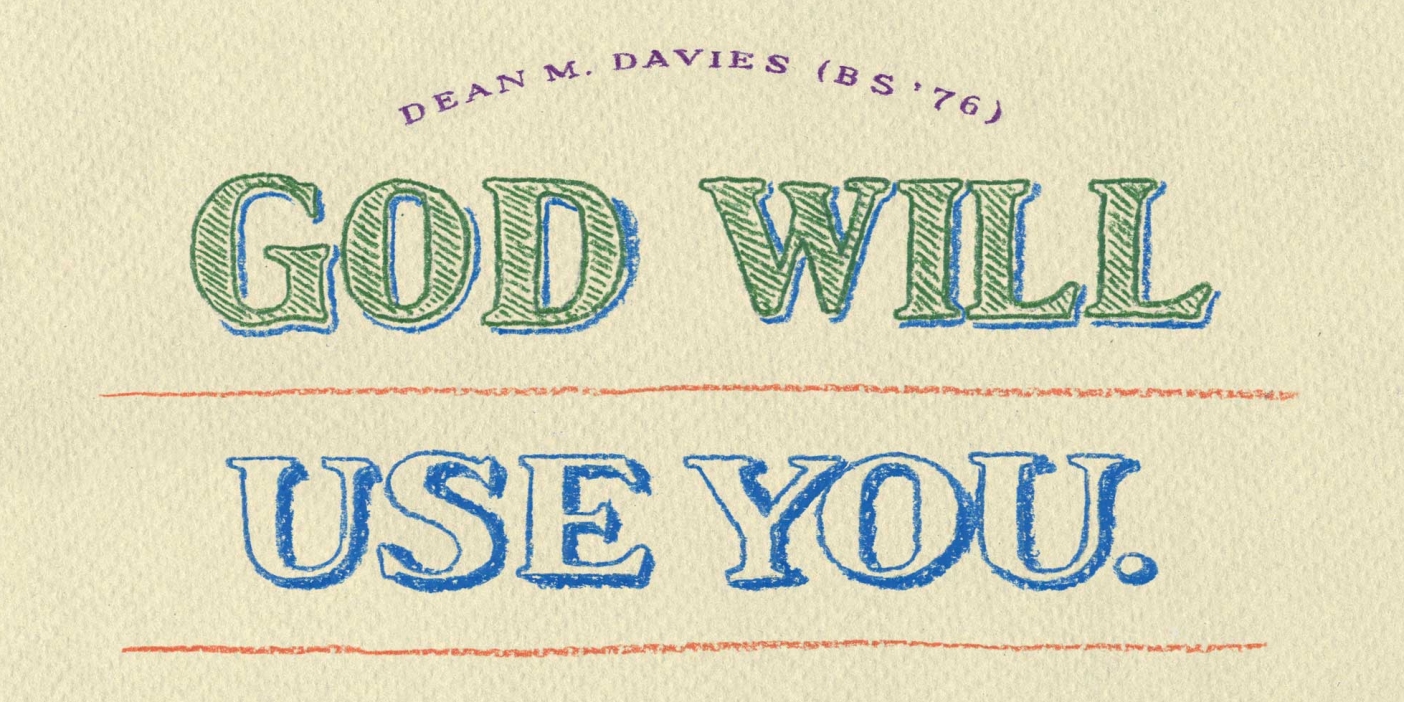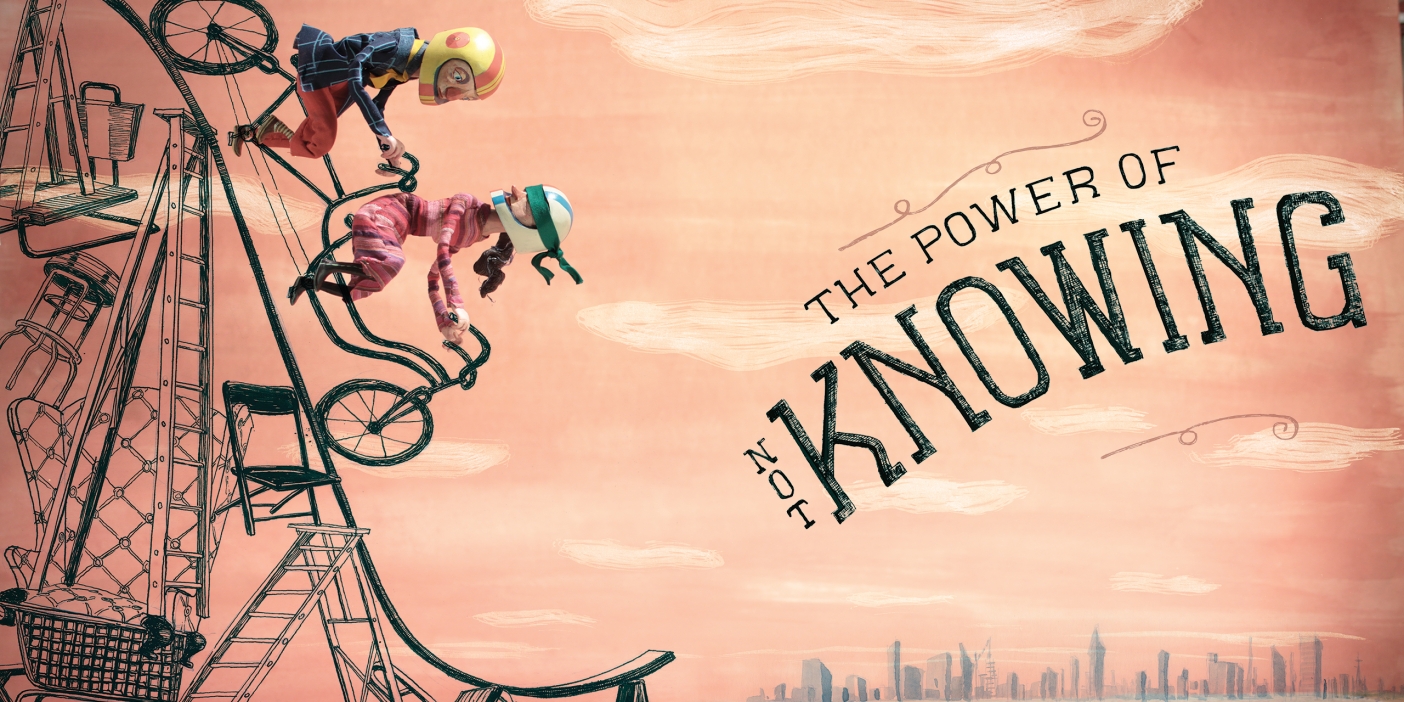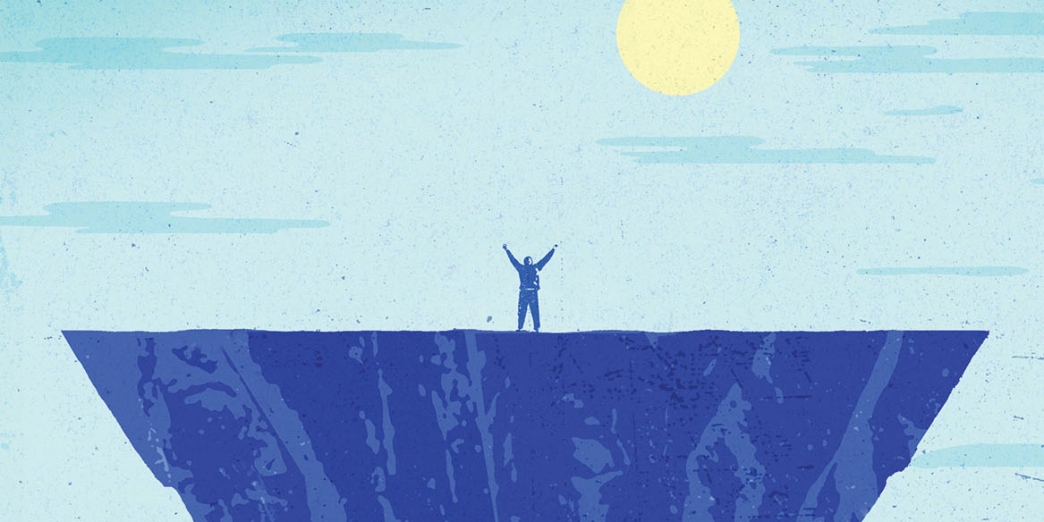On Loss and Waiting
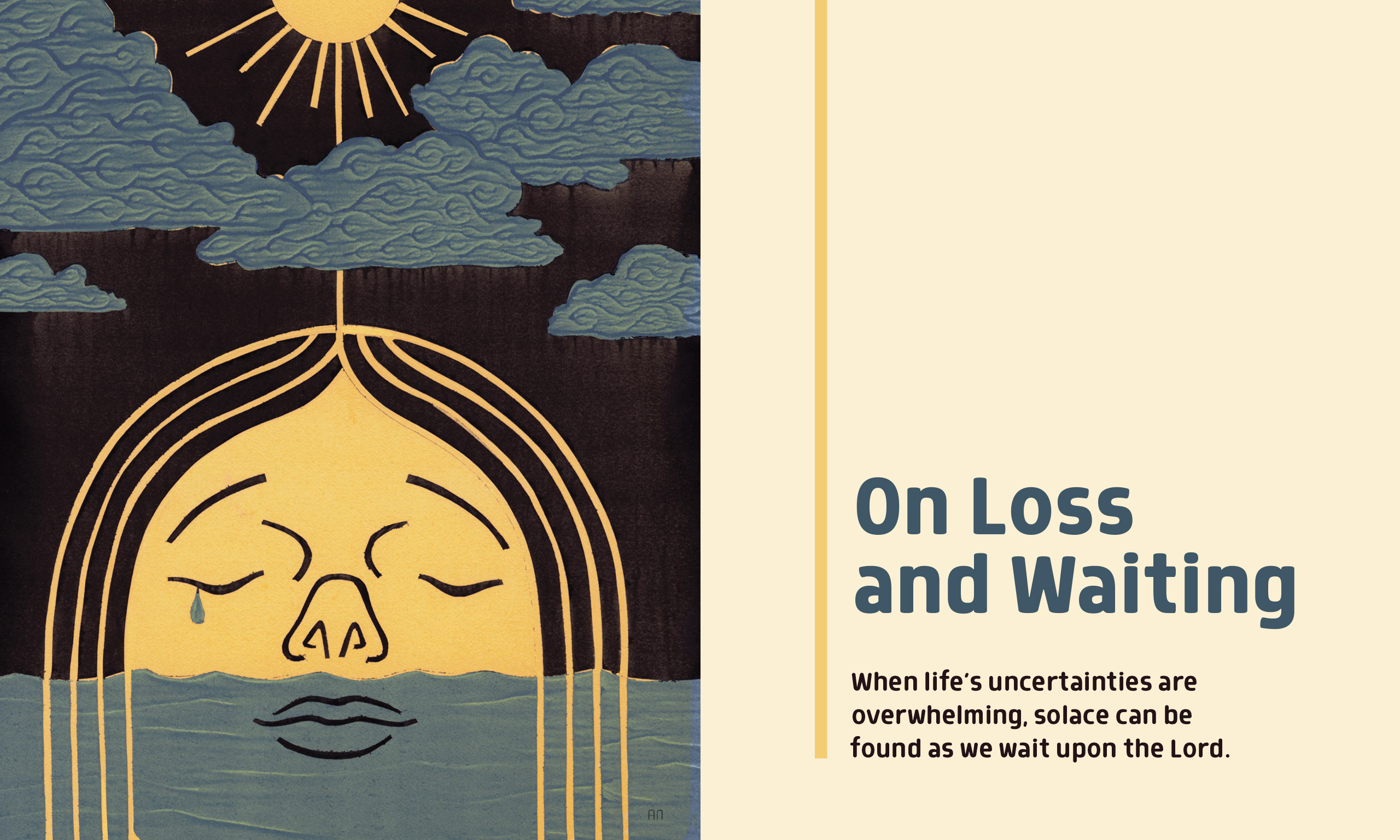
When life’s uncertainties are overwhelming, solace can be found as we wait upon the Lord.
By Erin Kramer Holmes (BS ’98) in the Winter 2018 Issue
Illustrations by Alex Nabaum
About three years ago, after many years of hoping another child would come to our family, my husband and I discovered we were pregnant. Our children had been praying for a new brother or sister, and my son told me he had dreamt of a new baby coming to our family. We told our children about the pregnancy right away, thinking it would reaffirm their faith and shore up their testimonies.
Unexpectedly, about 10 weeks into the pregnancy, we lost that baby. The pregnancy had felt like such a miraculous gift after so many years of waiting; losing that baby felt like God was taking the gift away.
The loss left me with many unanswered questions and much uncertainty. Loss was not a new experience for me, but somehow this loss shook me to my core. Frankly, I didn’t know if I could hope for another child; I didn’t know if I could trust God the way I had before this loss. I felt like somehow I had failed God—or maybe He had failed me. It was a time of uncertainty, and uncertainty can be painful.
Elder Robert D. Hales taught of such challenging uncertainties:
The purpose of our life on earth is to grow, develop, and be strengthened through our own experiences. How do we do this? The scriptures give us an answer in one simple phrase: we “wait upon the Lord” (Psalm 123:2).¹
One of the most beautiful scriptures on waiting upon the Lord is found in Isaiah 40. Consider these promises:
Hast thou not known? hast thou not heard, that the everlasting God, the Lord, the Creator of the ends of the earth, fainteth not, neither is weary? there is no searching of his understanding.
He giveth power to the faint; and to them that have no might he increaseth strength.
Even the youths shall faint and be weary, and the young men shall utterly fall:
But they that wait upon the Lord shall renew their strength; they shall mount up with wings as eagles; they shall run, and not be weary; and they shall walk, and not faint. [Isa. 40:28–31]
The Lord, who “fainteth not, neither is weary,” will be the source of our strength. Notice Isaiah did not say that we will find the Lord right away or that He will answer all of our questions right now. He did promise, however, that as we wait upon the Lord, we will have the capacity to endure life’s uncertainties.
As I have turned to scriptures like this one for answers and have reflected on my own experiences with uncertainty, I have discovered four basic principles that help us wait upon the Lord. I believe this sort of waiting is the antidote for uncertainty.
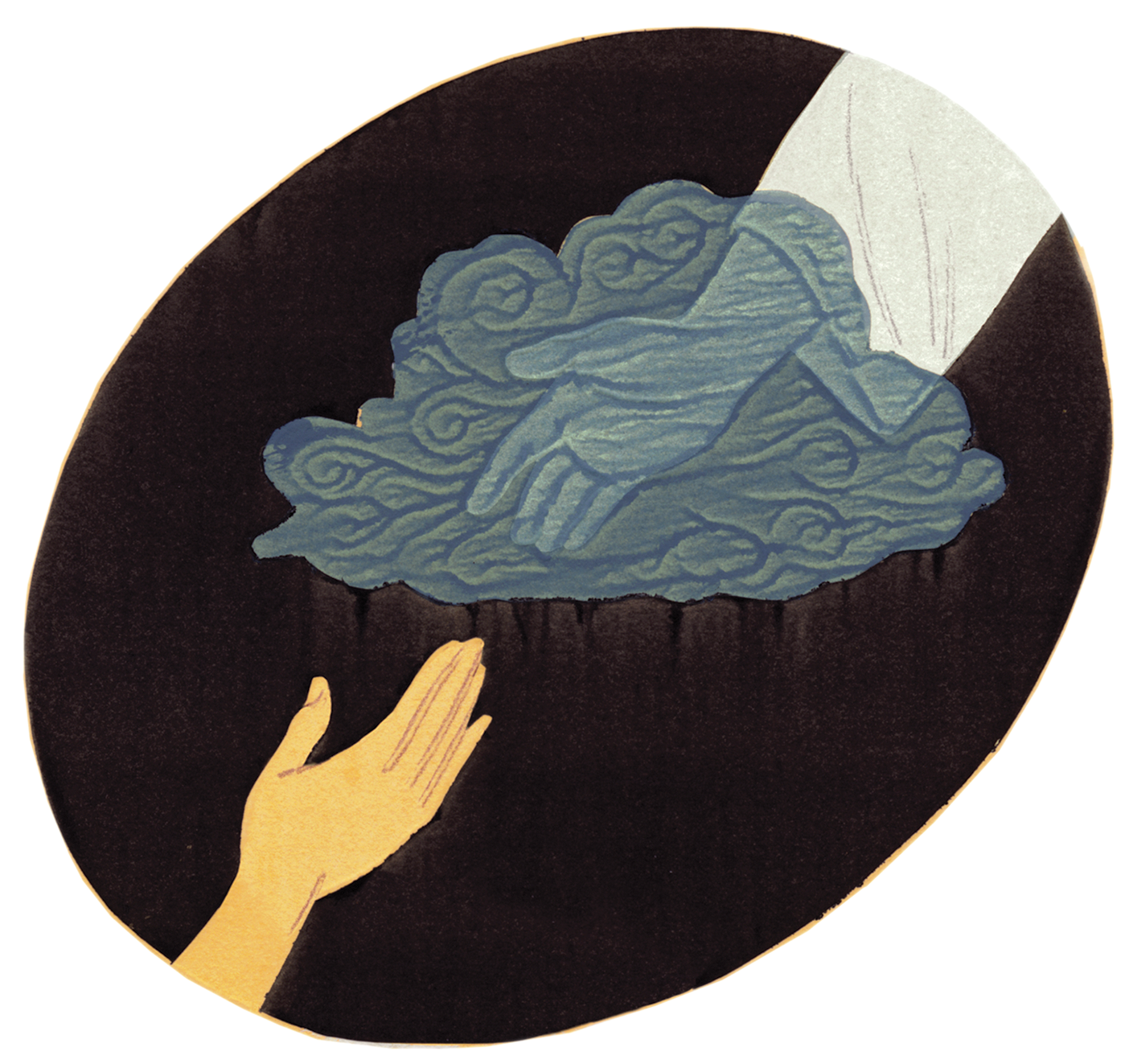
Actively Look for God
The scriptures teach that waiting on the Lord involves active seeking. Two scriptures form the foundation of this principle.
The first is found in Isaiah 8:17: “And I will wait upon the Lord, that hideth his face from the house of Jacob, and I will look for him.”
The second is found in Jeremiah 29:13: “And ye shall seek me, and find me, when ye shall search for me with all your heart.”
My miscarriage was not my first experience with uncertainty. One of my first major bouts began when I was in my early 20s. My husband, Chris, and I were recently married and were hoping to have children. As months and then years passed, we discovered that it would not be easy for us to get pregnant. So we waited. In the waiting, we filled our lives with graduate studies, church service, and friendships. We had a good life. But our struggle with infertility was deeply painful to me. There was so much uncertainty in that waiting. Would we ever discover why we were unable to have children? Would we finally be able to welcome a child into our family? What should I do with myself while I waited? Work? Get a PhD?
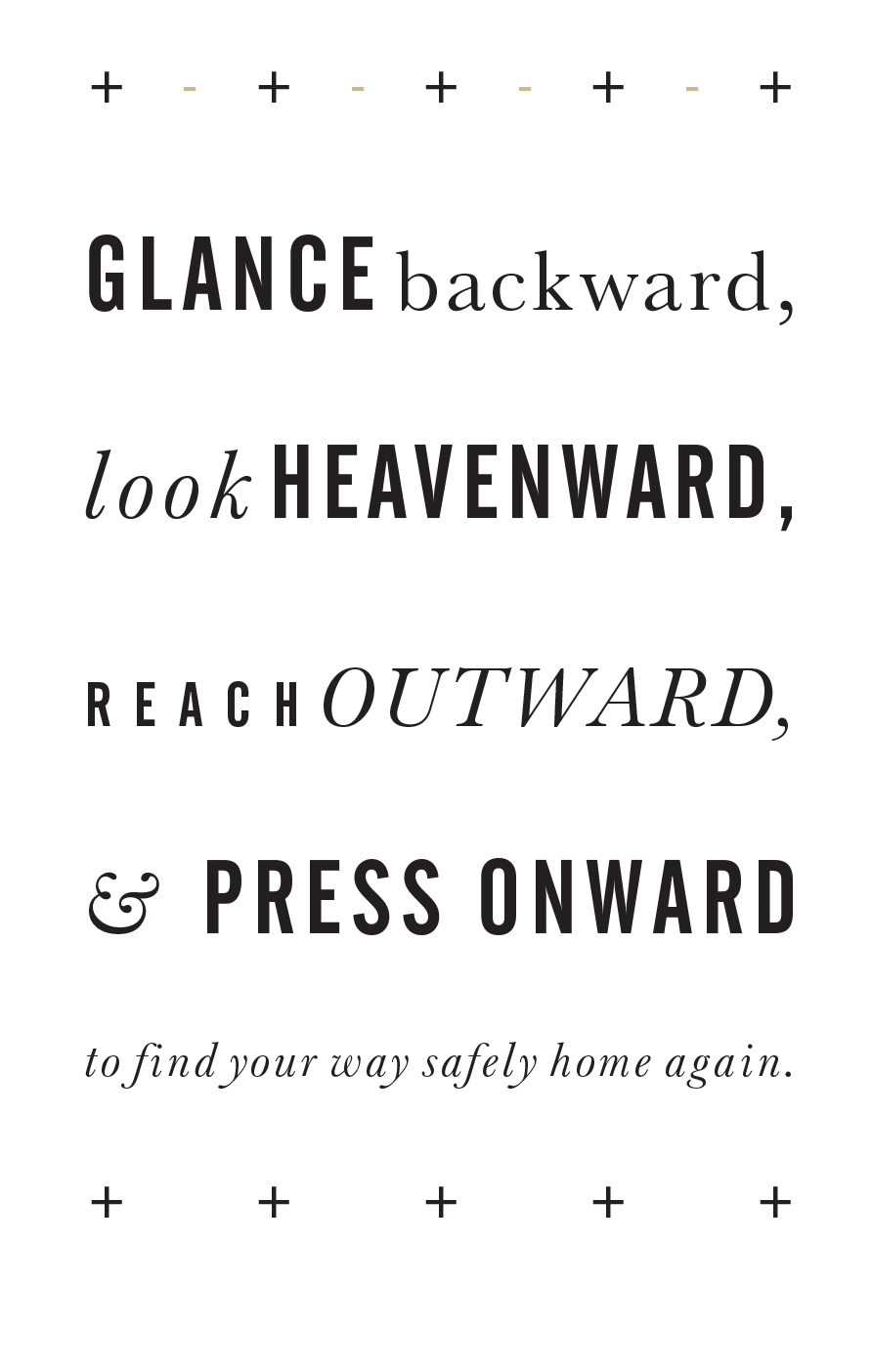
This uncertainty and waiting caused me to regularly turn to God for answers. I was discovering the first principle of waiting upon the Lord: to find God, I had to actively seek Him. To do this, I studied the scriptures and the teachings of prophets; I attended ward meetings; I went to the temple; I magnified my calling; I prayed fervently. Despite my seeking, the answers did not come swiftly.
I remember sitting with my ward in Newark, Delaware, on a day when the heavens felt particularly silent. (As Isaiah wrote, the Lord’s face was hidden from me.) One of our congregational hymns that Sunday was “I’ll Go Where You Want Me to Go.” We sang:
But if, by a still, small voice he callsTo paths that I do not know,I’ll answer, dear Lord, with my hand in thine:I’ll go where you want me to go.²
Through the lyrics of that hymn, I began to receive an answer to my prayers. In the midst of my uncertainty—those “paths that I do not know”—I had to put my hand in the Lord’s hand. I had to let Him lead me.
As we continued singing, I received a distinct impression that the Lord wanted me to go deeper into darkness and uncertainty on an unknown journey. I felt impressed that the journey would include further graduate studies, but I also felt that I would not immediately receive the answers I sought about having children. Instead, I had to keep moving forward. I had to keep waiting and seeking.
In such darkness, I couldn’t seek the Lord with my eyes alone. I had to seek Him with my heart.
What a deeply humbling thing it is to wait upon the Lord. Though I did not receive all of the answers I sought, I was finding the Lord, and He was helping me feel His presence in my life.
So I kept moving forward. Later in that same school year, I attended the general Young Women meeting. Many of the talks that evening focused on personal revelation. The closing address was given by President Gordon B. Hinckley, who counseled:
Find purpose in your life. Choose the things you would like to do, and educate yourselves to be effective in their pursuit. . . . In this day and time, a girl needs an education. She needs the means and skills by which to earn a living. . . .
Study your options. Pray to the Lord earnestly for direction. Then pursue your course with resolution.
The whole gamut of human endeavor is now open to women. There is not anything that you cannot do if you will set your mind to it. You can include in the dream of the woman you would like to be a picture of one qualified to serve society and make a significant contribution to the world of which she will be a part.³
In this message the Lord offered me a vision of the kind of future that could be mine. Again, I received no particular answer to my lingering question about when or whether I would have children. My uncertainty was not resolved, nor was my waiting over. Yet I was reminded that “the whole gamut of human endeavor” was open to me. I felt a confirmation that continuing my education could help me become “one qualified to serve society and make a significant contribution to the world” around me. Regardless of whether I became a mother, there could be a work for me to do. My experience singing that hymn and listening to President Hinckley reminded me that God had a plan for me. If I continued to faithfully seek Him, things that needed to be revealed to me would be revealed.
In faith, we can seek the Lord. We can put our hands in His and take this unknown journey together.
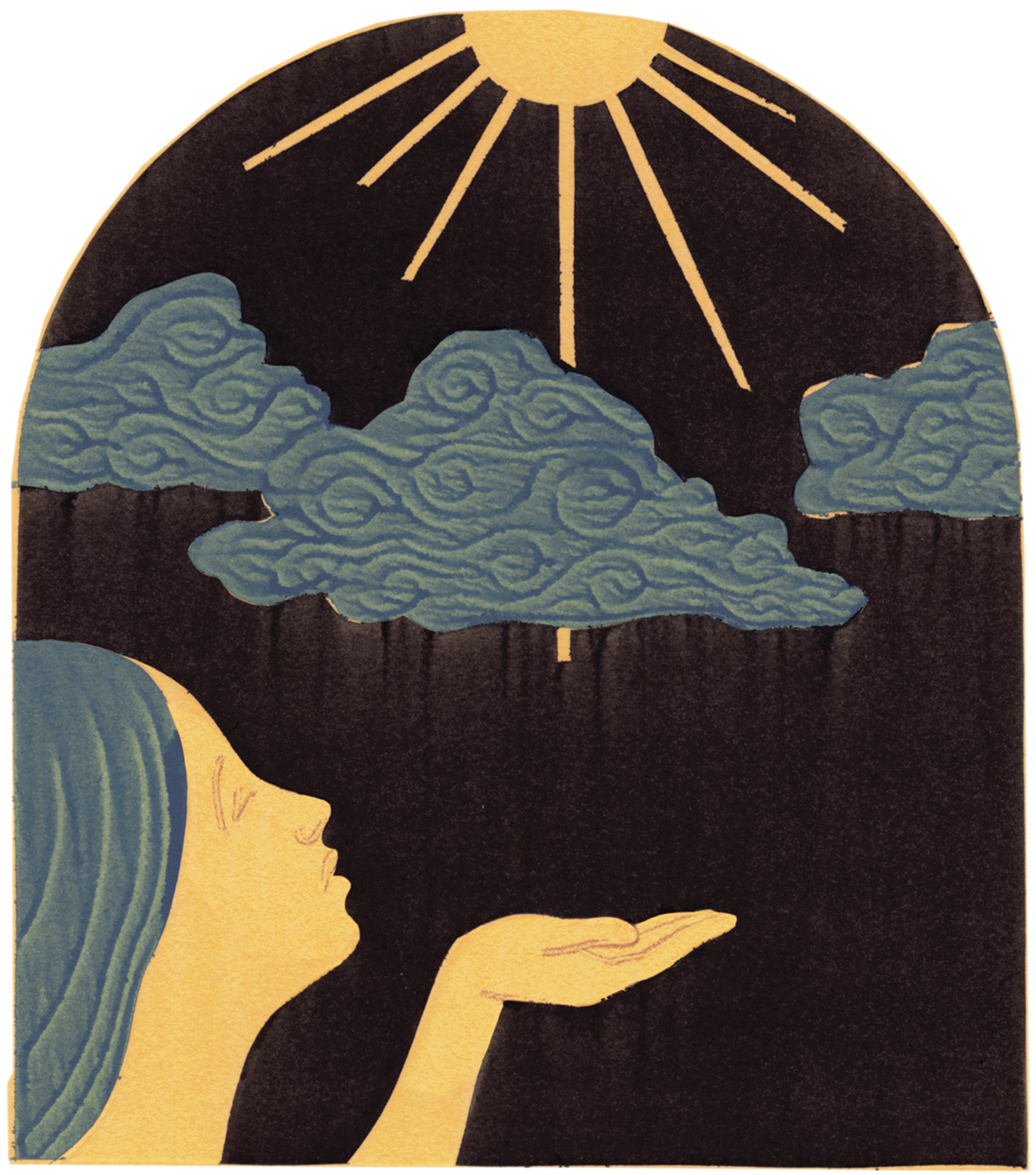
Trust God’s Plan
God has a plan for each of us struggling through uncertain times. As we seek Him, He will help us come to know what that plan includes. I want to share a few thoughts about the phrase “God has a plan for us.”
First, the plan God has for you may not match the ideal you have envisioned. In fact, it probably won’t. But we can have faith that together with the Lord we can create something truly remarkable.
Some of my students shared a blog post with me titled “You’re Not Messing Up God’s Plan for You.” The author taught, “It’s tempting to think that God has some master plan that He’s measuring me against, and if I take one misstep I’ve missed my chance for happiness forever.”⁴
I can relate to that fear. When life doesn’t seem to match the ideals we envision, we may struggle just as this author did, worrying that we don’t measure up or fearing that we are disappointing God.
She continued:
But you know what? As I’ve examined that mindset, I’ve learned that I need a better understanding of God and what the term “His plan for me” means.
I’m learning that God is much less a divine dictator who demands perfect compliance to a predetermined plan for our individual lives and much more a cocreator with us of the kind of lives we want to live.⁵

What a fantastic distinction! God is not a dictator; instead He is a cocreator. His plan includes creating a remarkable life with us.
Second, God’s plan for us will not match the plans He has for others. You must come to know what the Lord wants for you personally. President Uchtdorf taught:
We are not the same. We have unique spirits. We are influenced in different ways by our experiences. And each of us ends up different as a result.
Rather than attempting to force everyone into a mold of our own making, we can choose to celebrate these differences and appreciate them for adding richness and constant surprises to our lives.⁶
It takes courage and faith to celebrate and appreciate the beauty of our differences, to give others space to discover their own paths, and to trust that God will help us just as He helps those around us. This may include celebrating the wedding of a friend when you have no marriage prospects on the horizon. It may include being excited for someone who just got into the graduate school of their dreams even though you didn’t. I know what it is like to feel forgotten or insecure when others get the things I hoped for, but if we can learn to celebrate and appreciate differences, I believe our hearts will be more open to what God has in store for us.
At BYU Women’s Conference in 2015, Elder M. Russell Ballard counseled:
Each of you must come to know what the Lord wants for you individually, given the choices before you. . . .
Once you know the Lord’s will, you can then move forward in faith to fulfill your individual purpose. One sister may be inspired to continue her education and attend medical school, allowing her to have significant impact on her patients and to advance medical research. For another sister, inspiration may lead her to forgo a scholarship to a prestigious institution and instead begin a family much earlier than has become common in this generation, allowing her to make a significant and eternal impact on her children now.
Then he posed this question: “Is it possible for two similarly faithful women to receive such different responses to the same basic questions?” He emphatically responded:
Absolutely! What’s right for one woman may not be right for another. That’s why it is so important that we should not question each other’s choices or the inspiration behind them.⁷
With this understanding we can encourage each other, celebrate and appreciate our differences, and move forward in a partnership with the Lord. We need not judge or criticize. Our encouragement and love amid our differences will enhance our capacity to celebrate together. It will also enhance our capacity to understand God’s plan for us as we create that plan with Him.
Choose Faith and Hope
Waiting, seeking, and understanding God’s plan for us all require a tremendous amount of faith and hope. But how do we maintain faith and hope when uncertainty has such a strong capacity to make us doubt and fear?
I tend to be a little anxious and a little afraid to try new things. When I experience anxiety or fear, it seems innate, not like a choice. But in a 2008 devotional, BYU English professor Gregory Clark argued that when we wake up every day, we choose to be either faithful or fearful. When we choose faith, we minimize fear. When we choose fear, hope and faith are virtually impossible.
He explained:
When I am living in fear, I find change and changing—for the better, at least—almost impossible. It is important to learn how to live in faith rather than in fear because the process of changing for the better is at the very foundation of the Father’s plan for us.
He then asked, “What is the source of fear?” I really like his answer:
I think it is rooted in the assumption . . . that I must solve all my problems and face all my challenges alone, using my own resources. That is frightening, because deep in my heart I know how limited those resources are. . . . Knowing that I am not capable of changing myself or my circumstances for the better, I stand frozen in fear.
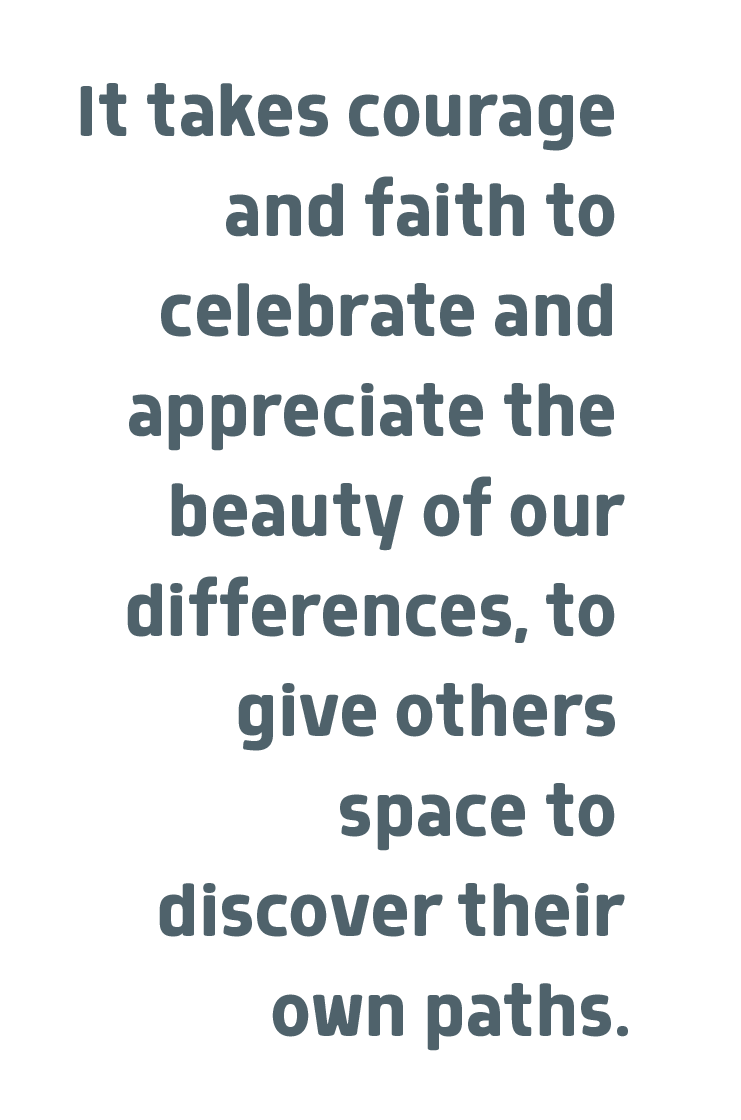
Fear comes from the false belief that we are all alone.
What then is the source of faith and hope? Professor Clark said, “Faith is founded upon our memory of divine witnesses and blessings received in the past and upon our hope in divine promises for the future.”⁸
When we remember spiritual experiences or blessings the Lord has given us, it is easier to hope for those same things in the future. The experiences remind us that we are not alone. This optimism in Christ’s divinity and this belief that we will continue to be blessed are the very essence of hope and faith.
One thing that helps me remember is keeping a record of the spiritual experiences and blessings I have received in my life. On my hardest days I like to pull out that journal and realize just how much the Lord loves me and watches over me. When I begin to feel afraid, rereading my journal reminds me that it would not have been better to lose hope, to stop trying to have children, to stop working toward my PhD, or to stop seeking God despite the heartache and challenges that have been part of my journey. Choosing faith and practicing hope have empowered me to act on God’s will—which includes embracing uncertainty and enduring beyond what I thought I could endure.⁹
Find Reassurance in God’s Love
After my miscarriage, aside from losing a child I had longed for, I began to lose myself. I felt distant from God; I sought Him but felt I couldn’t find Him. I struggled to find a sense of meaning or a sense of direction in my life. It was during this time that I discovered a painting by Brian T. Kershisnik (BFA ’88). It is titled She Will Find What Is Lost, and it depicts a group of angels from above supporting a woman.
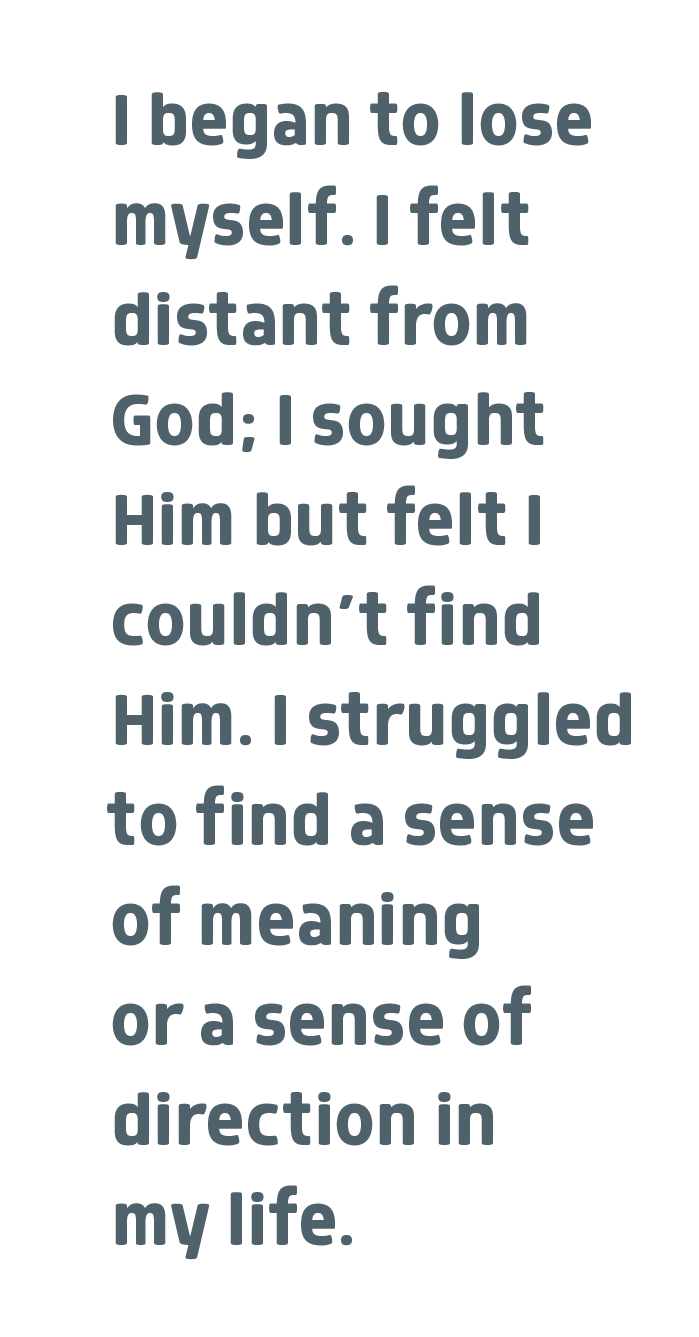
About a year and a half after that miscarriage, I discovered I was pregnant again. My anxiety about losing this baby was high. Despite my excitement about a new pregnancy, I began again to feel lost in uncertainty. One day while at work, the feeling was intense. I knelt down in my office in the Joseph F. Smith Building, and I prayed fervently that God would be with me in my waiting. It was a prayer full of faith and longing for Him to confirm to me that my baby would be healthy. But while praying, I knew that I had to pray for something else: I had to pray that whatever happened, God would be with me, that He would help me manage whatever pain, sorrow, or loss might come. I had to pray for this because the possibility of losing this baby was real.
After that fervent prayer I stood and tried to return to my regular routine, which included walking down to the Richards Building. As I walked down the steps and into the building, the most remarkable thing happened, and it stopped me in my tracks: I felt a tingling from the top of my head to the tip of my toes. It was truly electric. In my mind and in my heart I knew God was fully aware of me. He understood how lost and afraid I felt. He was with me then and would continue to be with me however long I needed Him. That was a rare but needed gift for me in that moment.
In that moment, the painting returned to my mind: She Will Find What Is Lost. God was helping me find what was lost—myself and my strong relationship with Him. I was not alone.
Sadly, I did have another miscarriage. But this time I did not lose that powerful, sustaining witness of God’s love for me. When we feel lost, we can find reassurance in God’s love for us.
Previously I suggested that a core principle of waiting is seeking the Lord. But my experience has taught me that sometimes, when we are lost, He will also find us.
President Uchtdorf taught:
God is fully aware of those who are lost—and . . . He will find them. . . .
Our Savior, the Good Shepherd, . . .
. . . knows when you are lost, and He knows where you are. He knows your grief. Your silent pleadings. Your fears. Your tears. . . .
. . . You are His child. And . . . He loves His children.¹⁰
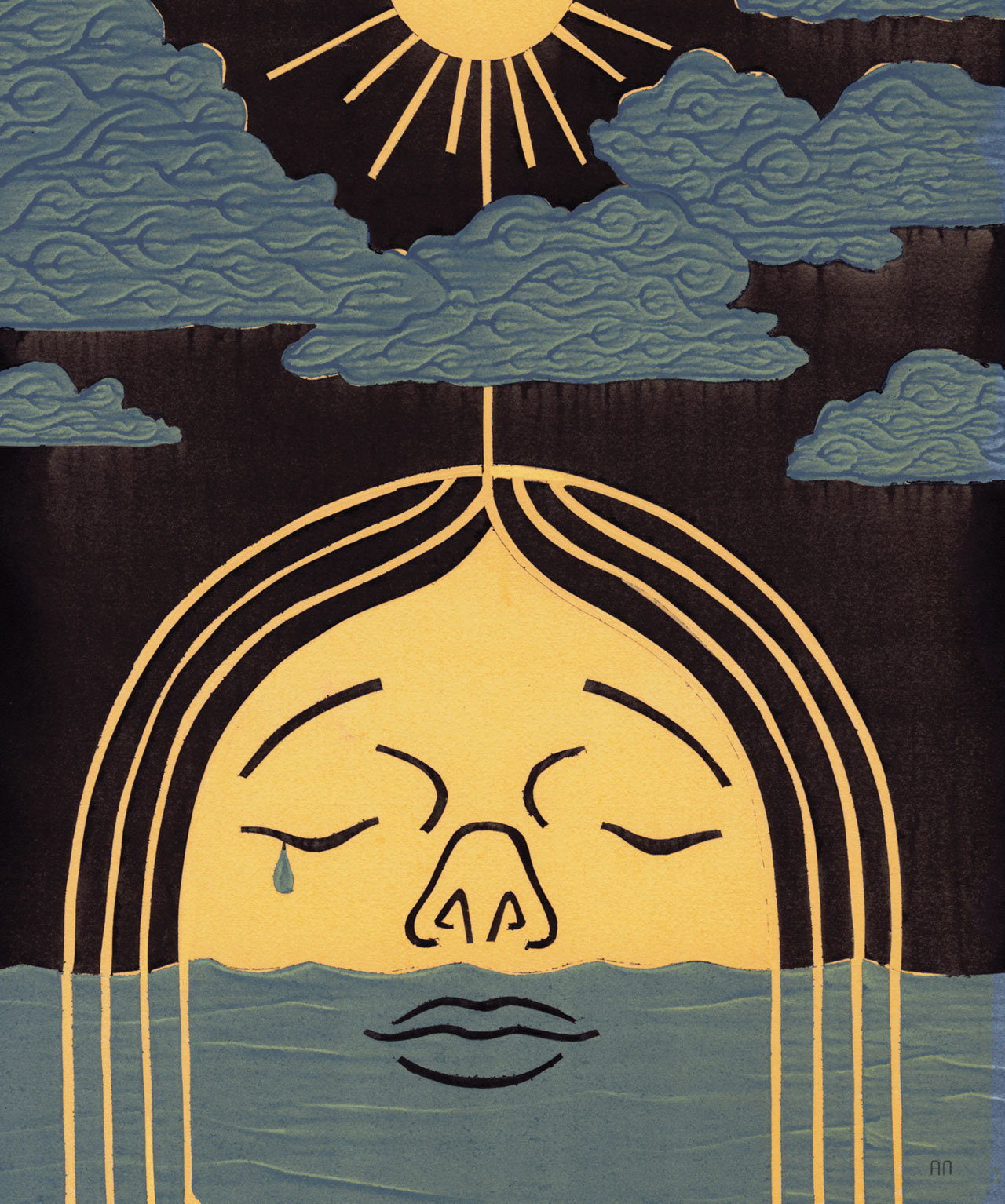
In My Waiting
In closing, I would like to share one more message regarding uncertainty. Sister Neill F. Marriott taught:
Scripture says, “Search diligently, pray always, and be believing, and all things shall work together for your good” [D&C 90:24]. This doesn’t mean all things are good, but for the meek and faithful, things—both positive and negative—work together for good, and the timing is the Lord’s. We wait on Him, sometimes like Job in his suffering, knowing that God “maketh sore, and bindeth up: he woundeth, and his hands make whole” [Job 5:18]. A meek heart accepts the trial and the waiting for that time of healing and wholeness to come.¹¹
I am still waiting. In my waiting I have sought God and found Him. His plan for me is unfolding as I take His hand and accept the invitation to become a cocreator with Him. I am trying to choose hope and faith. Sometimes, when I am lost, He finds me.
In life’s uncertainties, I pray that you will also seek Him, that you will strive to understand His plan for you, and that you will choose faith and hope. As you do these things, I hope you will receive heavenly reassurance. He knows you. He loves you. I testify that following these principles has helped me face uncertainty. I believe they can help you too.
Feedback: Send comments on this article to magazine@byu.edu.
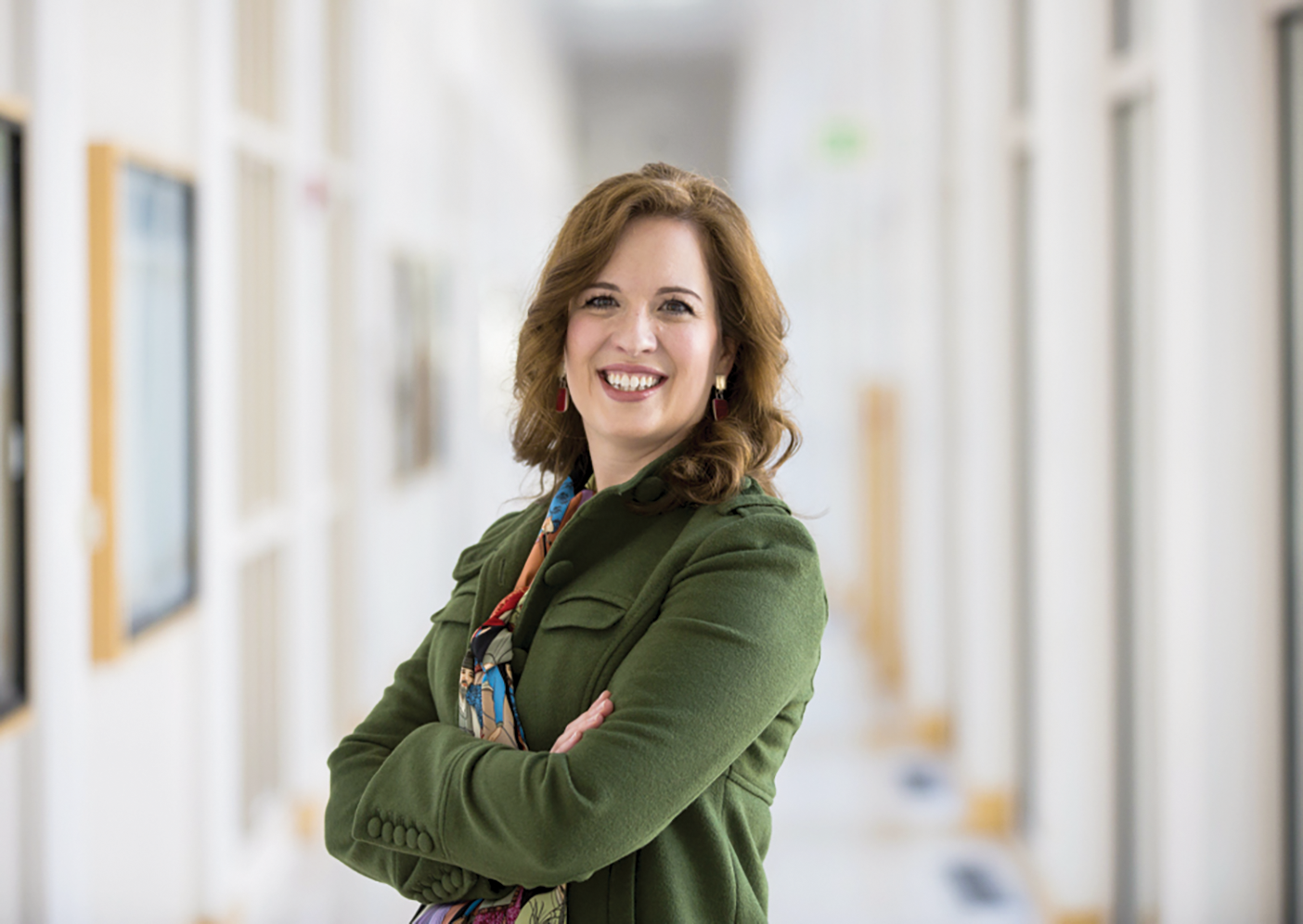
Erin Holmes, associate director of the BYU School of Family Life, delivered this devotional address on April 4, 2017. The full text and video of the address are available at speeches.byu.edu.
NOTES
- Robert D. Hales, “Waiting upon the Lord: Thy Will Be Done,” Ensign, November 2011.
- “I’ll Go Where You Want Me to Go,” Hymns, 2002, no. 270.
- Gordon B. Hinckley, “How Can I Become the Woman of Whom I Dream?” Ensign, May 2001.
- Ariel Szuch, “You’re Not Messing Up God’s Plan for You,” LDS.org blog, Feb. 22, 2017.
- Szuch, “You’re Not Messing Up.”
- Dieter F. Uchtdorf, “In Praise of Those Who Save,” Ensign, May 2016.
- M. Russell Ballard, “Women of Dedication, Faith, Determination, and Action,” BYU Women’s Conference address, May 1, 2015.
- Gregory Clark, “Some Lessons on Faith and Fear,” BYU devotional address, May 6, 2008.
- See Dieter F. Uchtdorf, “Fourth Floor, Last Door,” Ensign, November 2016.
- Dieter F. Uchtdorf, “He Will Place You on His Shoulders and Carry You Home,” Ensign, May 2016.
- Neill F. Marriott, “Yielding Our Hearts to God,” Ensign, November 2015; emphasis in original.


